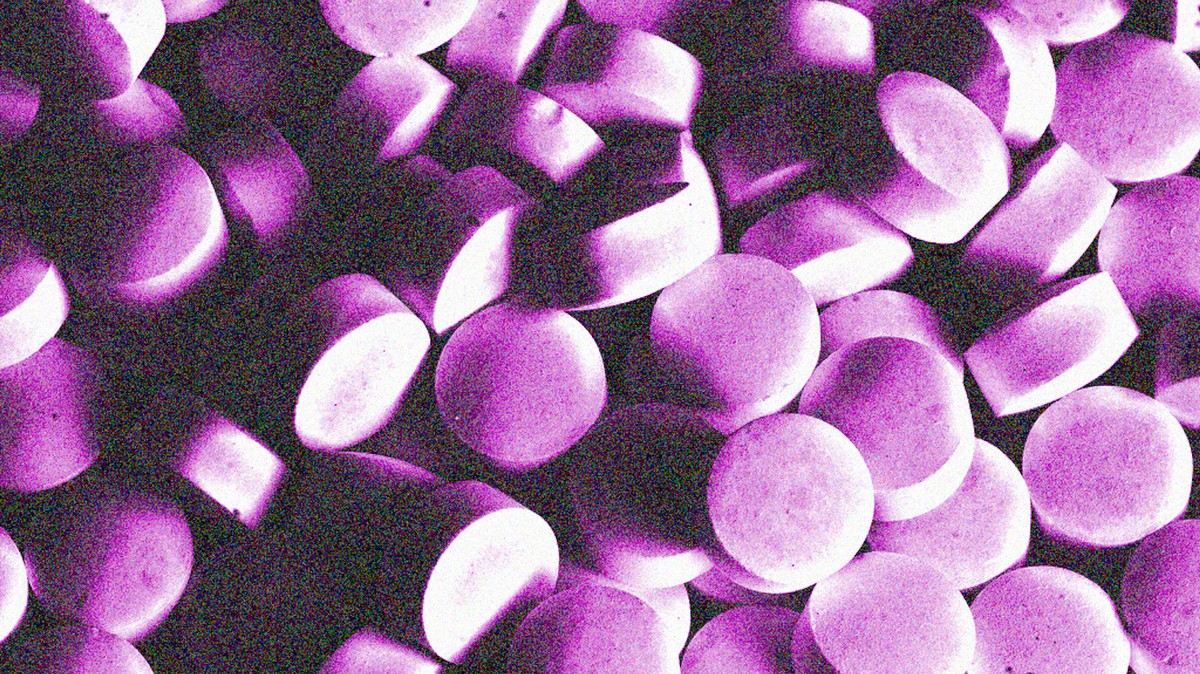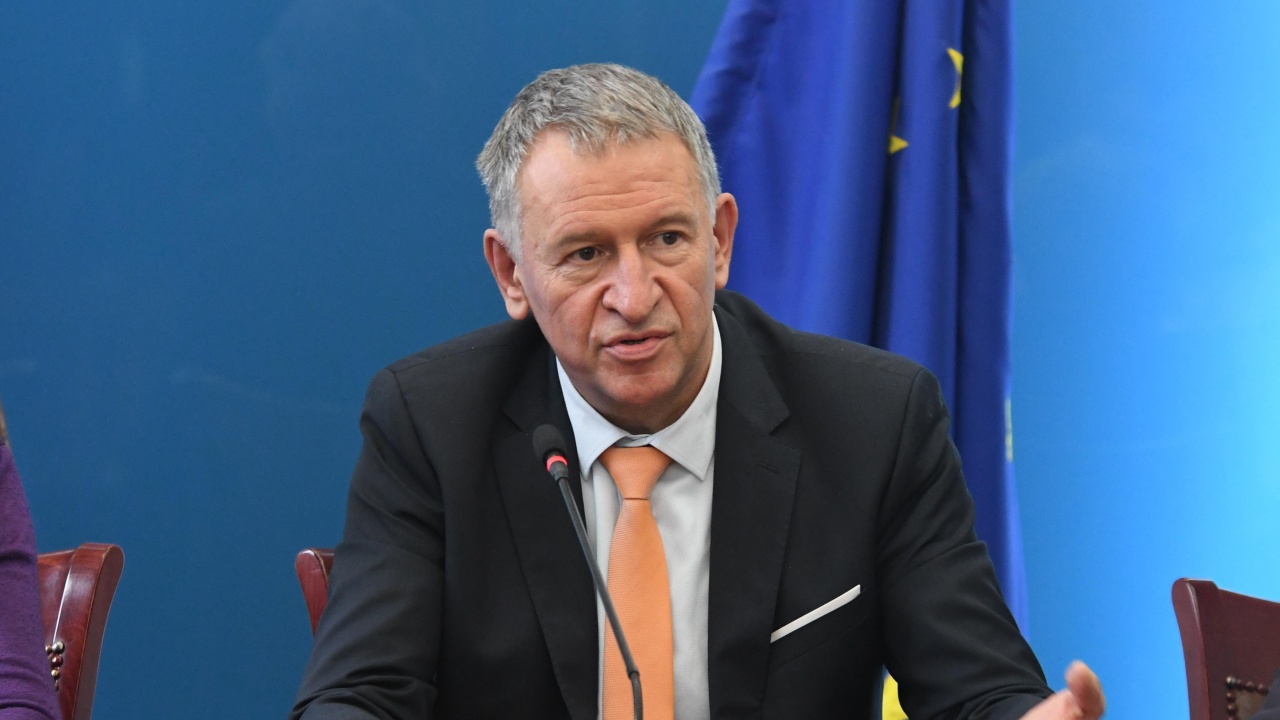In the Netherlands there are almost 150,000 people who suffer from post-traumatic stress disorder (PTSD). They have experienced something so intense that it left them traumatized. As a result, they suffer from nightmares, panic attacks and outbursts of anger, or they become catatonic and just stop responding to anything at all. Although there are various treatments for PTSD, about half of all patients continue to suffer from psychological problems for the rest of their lives. For those people, MDMA therapy could offer a solution, according to recent research.
American Jessi Appleton does want to tell you how MDMA therapy has helped her. We get in touch with her through a communications officer from the Multidisciplinary Association for Psychedelics Studies (MAPS), who researches MDMA therapy. Jessi hopes that people will gain more understanding for the treatment method, which does raise some eyebrows because people mainly know MDMA as an illegal party drug. For her it turned out to be very helpful against the traumas she suffered in her youth.
“I’ve experienced just about every kind of abuse you can imagine,” Jessi said during a Zoom conversation. “Physically, mentally, sexually.” That abuse continued until she was fourteen years old. Then she decided enough was enough and ran away from home. In the years that followed, she roamed the streets in a fierce struggle for survival.
Because of the trauma, Jessi suffered from panic attacks and depression. She went to a therapist who gave her various medications, such as antidepressants and tranquilizers for the nightmares. The medications and therapy sessions did not help her cope with the trauma. Jessi remained terrified of men who reminded her of the abuse. As soon as such a memory threatened to bubble up, she shut herself off completely, she dissociated. Because of her fear, she was unreachable at such a moment, also for her therapist. Her psychological problems continued to worsen and she thought about taking her own life.
Her psychiatrist then told her that a new experimental treatment with MDMA was available. After an extensive check-up during which Jessi was fully medically vetted, she was told that she could follow that treatment. “The first time I was really scared,” she says. It was very intense for her to be confronted with all those hidden memories, but because of the effects of mdma she managed to let go of those fears. “Suddenly I could look at my traumas in a completely different way. At the same time, I experienced enormous support from the therapists.”
During the therapy session, MDMA therapists such as psychiatrist Tijmen Bostoen and Erwin Krediet of the ARQ National Psychotrauma Center try to ensure that people feel as safe and trusted as possible. “We really try to support someone in their own process that starts under the influence of MDMA,” says Dr Bostoen during an online conversation. “We help them trust that they can take it no matter what, and that we’re going to help.” That is why attention is also paid to the atmosphere in the room, which must feel homely, with pleasant ambient light and pleasant music.
“The interesting thing is that during such a session people can look at their difficult and fearful experiences with quite a bit of rest. You can see from their faces after the MDMA session that they are much more relaxed, that they let go more easily,” says Dr Bostoen. The role of the therapists is to offer a comforting shoulder or a helping hand, but the people themselves do the work. “A lot of people come to things that you would like to discuss in therapy, but which are sometimes no longer accessible because there is so much tension. All of a sudden things like that seem to open up and it comes along in a very natural way.”
Because it concerns rather intense memories, the MDMA sessions are certainly not a party to be part of, says Jessi. “It was really tough, after such a session I was totally exhausted. But it was also a very nice process. I could face things that I had never dared to do before.” She attended three such MDMA sessions. The therapy released so many memories and feelings that it was enough for her to process her traumas with the help of the therapists. She no longer suffers from depression. It turns out that Jessi is not the only one who benefits from this kind of therapy. Psychiatrist Tijmen Bostoen, for example, points out a recent study which shows that a large proportion of the test subjects no longer suffer from ptsd-related complaints thanks to the therapy. “You see that a decent percentage heals.”
Yet MDMA in the Netherlands still struggles with a pretty bleak image. Our Prime Minister Mark Rutte calls the drug ‘mess‘ and people who use it are as far as he’s concerned’idiots‘. “Just don’t,” he said in an interview with VICE. “We are not going to facilitate all of that because people want to kill themselves.”
But MDMA appears to be quite safe in a clinical setting, despite its reputation as a deadly hard drug. To assess safety, British psychiatrist Ben Sessa used data from dozens of studies unraveled. Of the more than 1,600 subjects in those studies, only one person suffered from heart problems. That test subject turned out to be in the hospital for observation after one night fully recovered to be. Although the use of MDMA is not without some risks, the dangers are manageable within a clinical setting.
“We know from MDMA that if you take a few doses of it, it is not harmful,” confirms associate professor of Psychology and Neuroscience Kim Kuypers. She regularly attends Maastricht University research into psychedelic drugs such as MDMA or psilocybin. She is very enthusiastic about MDMA therapy. from a recently published study For example, the authoritative scientific journal Nature shows that there is at least a 99.99% chance that MDMA therapy can reduce ptsd-related complaints. “That’s a very strong finding,” she says.
Despite of positive results more research needs to be done before MDMA can be approved as a drug. “What I find difficult is that we have to reject people for the studies because they do not qualify,” says Kim Kuypers. “You notice that the need is very high.” However, a large proportion of Dutch ptsd patients will have to be patient for a number of years before they can follow MDMA therapy. The conditions for participating in the studies are fairly strict and MDMA cannot be used on a large scale for therapy here until the drug has been approved.
Drug researcher Allison Coker explains that the European Medicines Agency (EMA) wants to see a number of large-scale studies from Europe. The published studies were in fact done in Canada, the United States and Israel. In a series new investigations it must be discovered whether the therapy works just as well in people living in Europe. “There are cultural differences in European regions,” Allison explains in an email. “New research in that population allows the EMA to better assess the results.” That is why we are now working on a large-scale investigation at locations in the Netherlands, Germany, the Czech Republic, Norway, Portugal and the United Kingdom. If this results in more or less the same results, scientists expect that MDMA within a few years will be available as legal medicine.
There are also practical challenges. So there are still plenty to do therapists are trained to treat trauma with MDMA therapy. At the moment there are only a few dozen therapists who have followed the training. Ultimately, at least hundreds of Dutch MDMA therapists will be needed if the new form of therapy is approved.
And then the question is whether health insurers will reimburse it. MDMA therapy is quite expensive. It is a fairly intensive process with all kinds of pre-meetings and follow-up discussions. The MDMA sessions also last a full working day. Still, MAPS thinks that MDMA therapy is less expensive in the long run because people don’t have to take medication for the rest of their lives. As a result, the costs of the treatment paid back after three years to be.
A windfall is that the new form of therapy can count on an enthusiastic reception from the Ministry of Health. Spokesperson Emilie van Westerouen van Meeteren responds to an email from VICE that this is “an interesting development as far as VWS is concerned”. The ministry also does not expect a political conflict to arise if MDMA is suddenly legalized through a back door at the psychiatrist. “Recreational use and medicinal use of these types of substances are independent of each other,” the ministry said. “The lists of the Opium Act contain a lot of substances that are also in medicines, such as various painkillers, or Ritalin.”
So for the time being, the future of medicinal MDMA looks bright. Scientists hope that once the drug is approved as a drug, it could later be used to treat other mental health problems. For example, MDMA therapy could be used against social phobia of in relationship problems. But it may take some years before psychiatrists in the Netherlands start working with the drug.
Do you need help?
Then you can contact Stichting 113 Suicide Prevention via telephone number 113 (24/7 available), 0800-0113 (24/7 available), 0900 0113 (24/7 available) and 113.nl.
–


